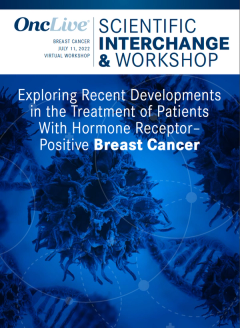
Dr. O’Regan on the Development of Oral SERDs in Breast Cancer

Ruth M. O’Regan, MD, discusses the development of oral selective estrogen receptor degraders in hormone receptor–positive breast cancer.
Ruth M. O’Regan, MD, professor, chair, Charles Ayrault Dewey Professorship of Medicine, Department of Medicine, the University of Rochester, physician-in-chief, Strong Memorial Hospital, associate director, Education and Mentoring, the Wilmot Cancer Institute at University of Rochester, discusses the development of oral selective estrogen receptor degraders (SERDs) in hormone receptor (HR)–positive breast cancer.
The randomized phase 3 EMERALD trial (NCT03778931) evaluated the oral SERD elacestrant vs standard endocrine therapy in pretreated patients with advanced or metastatic estrogen receptor–positive, HER2-negative breast cancer. Data from the study showed an advantage for the oral SERD over standard therapy, O’Regan says. Although it was a modest difference, elacestrant appeared to have efficacy in HR-positive breast cancer harboring ESR1 mutations, O’Regan adds.
The development of elacestrant and other oral SERDs could provide a treatment advantage over the SERD fulvestrant, which is administered through intramuscular injection, O’Regan notes. Additionally, oral SERDs won't have the same bioavailability issues as fulvestrant, and evaluating these agents further will be crucial, O’Regan explains. Adjuvant studies are being planned with oral SERDs, though there have not been much compelling data in the metastatic setting, and there are adverse effects, such as gastrointestinal toxicity, that need to be considered. O’Regan adds.
Ultimately, oral SERDs would represent a more convenient treatment option for patients, O’Regan continues. In the early phase setting, encouraging data have been observed for the combination of oral SERDs with CDK4/6 inhibitors, and these regimens could be further explored in the future, O’Regan concludes.







































